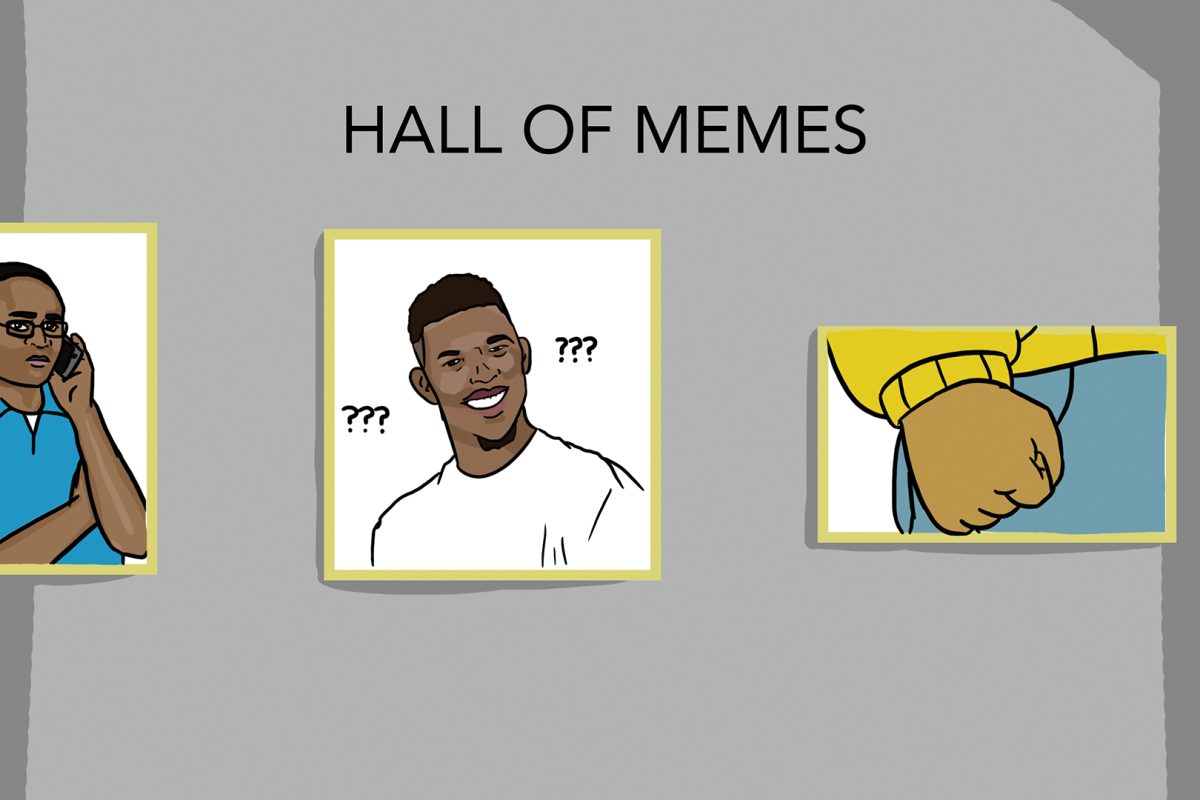In the age of the absurd and hyper-real, cultural and intellectual diffusion will not be left up to mundane literature or philosophical posturing. Millennials have reached a level of self-awareness and skepticism that has drawn us to a different kind of revolutionary tool: Internet memes.
Although the term “meme” was coined in the 1970’s as a way to define cultural evolution and natural selection of ideas, we have shifted it’s meaning to something different and built a whole new culture out of it. The meme has taken on a life of its own and we are currently living in a golden era of viral phenomenon thanks to the Internet age.
What makes today’s meme culture revolutionary is that, for the most part, it is highly democratic and a bottom-up form of diffusion. Most of the time, rather than being created by an elite group of people or an advertising agency, the things that go viral are created by and voted on by average people in a grassroots manner.
Our generation is drawn away from norms as formed by conventional news outlets, which philosophers such as Søren Kierkegaard have credited with completely manufacturing massive public opinion. Instead, people are given the ability to essentially vote on what they agree with through semi-organic dispersion.
Memes are an art form of the people. Anyone with access to the Internet can upload a picture or video, create a hashtag or send out a tweet that ends up going viral in some fashion.
Many memes are politically or socially centric, and they allow for people to express their views on what is going on in the world today, creating a popular opinion. We recently saw this with Kendall Jenner’s infamous Pepsi commercial which many people believed to be tone-deaf and exploitative of true struggle.
In the commercial, Jenner joins a vaguely liberal protest that is met with the least intimidating police presence I have ever seen at a demonstration. The protestors stand ready to face these strangely tame, non-confrontational officers and Jenner saves the day—and her fellow protestors—by offering one of the cops a can of Pepsi.
Immediately, the Internet responded. Pictures of civil rights activists who once faced the true brutalities of being a political dissident started to circulate. Attached was text implying that if only they had offered the police a Pepsi then perhaps things would have ended better for them.
Pepsi was forced to issue a mediocre apology and pull their ad. In this sense, the Internet backlash served as pushback against corporate interest attempting to appropriate bold resistance.
The danger that comes with this tool is that people will begin to think that a viral image is enough to foster change, when it is only enough to create conversations. The process of cultural diffusion becomes ego-driven when it is based on a numerical amount of Internet capital; however, the power of the meme is evidently groundbreaking and, when used correctly can be a great component of resistance.
– May Olvera is a journalism junior
Categories:
Memes: The millennials’ call to arms
April 29, 2017
Illustration by: Haley Prieto | Staff Illustrator
0
Donate to The University Star
Your donation will support the student journalists of Texas State University. Your contribution will allow us to purchase equipment and cover our annual website hosting costs.
More to Discover








